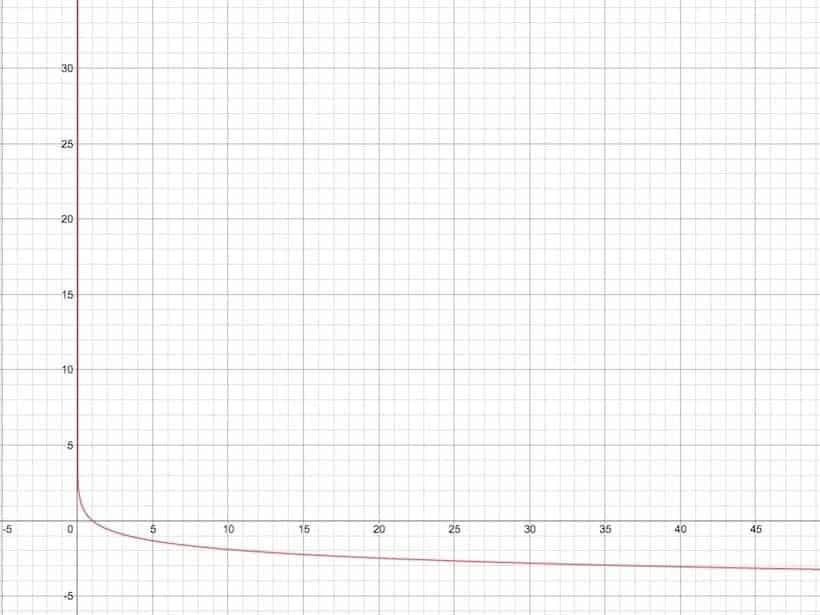
(For a thorough treatment on logarithm, see Logarithm:The Complete Guide.)
Subham asked the following question involving a logarithmic inequality:
Solve $\log_{0.3} (x^2+8) > \log_{0.3} (9x)$.
And here is our answer:
Table of Contents
A Brush-Up on Small-Base Logarithmic Function
When $\log(x)$ has a base that is strictly between $0$ and $1$, it behaves as a strictly decreasing function, meaning that:
$\displaystyle x_1 > x_2 \iff \log x_1 < \log x_2 $
Proof
Preliminary fact about Small-Base Exponential Function
First, notice that while for large bases ($>1$) exponential functions are strictly increasing, for small bases (i.e., base strictly between $0$ and $1$), exponential functions are actually strictly decreasing. That is:
For all $x_1, x_2 \in \mathbb{R}$ and any small base $b$, $x_1 > x_2 \iff b^{x_1} < b^{x_2}$.
Going Back to the Proof
Given any two positive real numbers $x_1, x_2$ and any small base $b$, we break down the proof in two parts:
- $\log_b (x_1) < \log_b (x_2) \longrightarrow x_1 > x_2$
- $\log_b (x_1) \ge \log_b (x_2) \longrightarrow x_1 \le x_2$
For the first part, suppose that $\log (x_1) < \log (x_2)$, then the strictly-decreasing-ness of the exponential function with base $b$ implies that: \[ b^{\log_b (x_1)} > b^{\log_b (x_2)} \]
or equivalently, \[ \displaystyle x_1 > x_2 \]
So the first part is done. The second part is proved similarly. $\blacksquare$

Going Back to the Original Logarithmic Inequality
Applying the strictly-decreasing-ness of $\log_{0.3} (x)$ to the original logarithmic inequality, we have:
$x^2 + 8 < 9x$
or (after some quadratic factorization):
$(x-1)(x-8) < 0$
which means that $1 < x < 8$. Pretty neat. Isn’t it? 🙂


